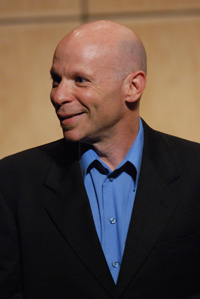
Phil Farnsworth
Andrew List
Position
Professor Emeritus
Affiliated Departments
Telephone
617-747-8177
Personal Websites
For media inquiries, please contact Media Relations
Career Highlights
- Commissions include En Closures ballet score for Rebecca Rice Dance and Blast for the Civic Symphony of Boston
- "Magical Dreamscape" performed by the Metamorphosen Chamber Orchestra and "Millennial Interlude for 14 Instruments" performed by North South Consonance
- "Violin Concerto" recorded by Prague Radio Symphony, with Eva Szekely, violin solo (Albany Records)
- List and Friends, a four-concert series of chamber music and commissions of new works, sponsored by Amsterdams Fonds voor de Kunst and the American Embassy (The Netherlands)
- Composer-in-Residence with Amsterdam, The Netherlands
- Private lessons with Richard Danielpour, Samuel Headrick, Nicolas Maw, and Bernard Rands
Awards
- Professor Emeritus, Berklee College of Music, 2025
In Their Own Words
